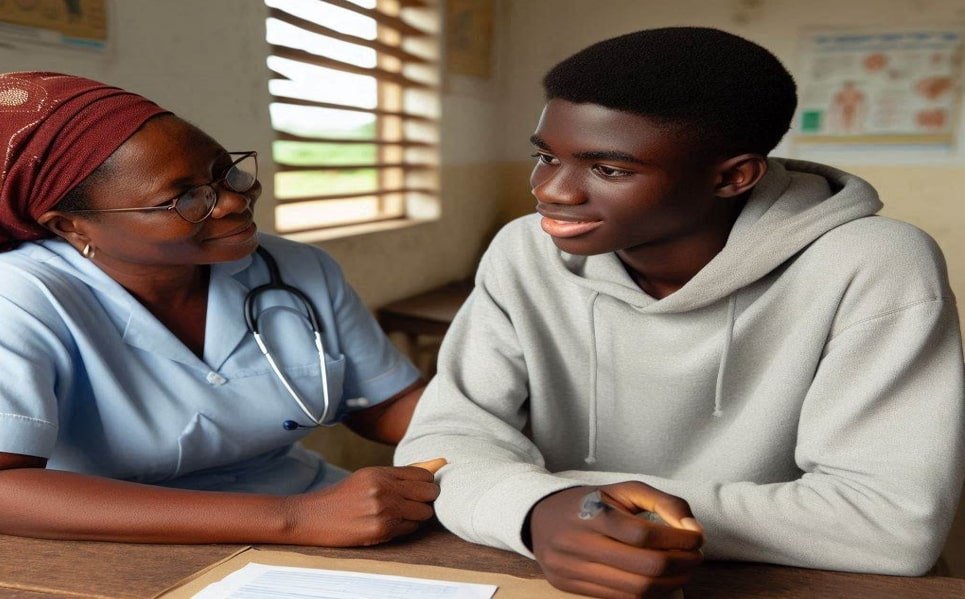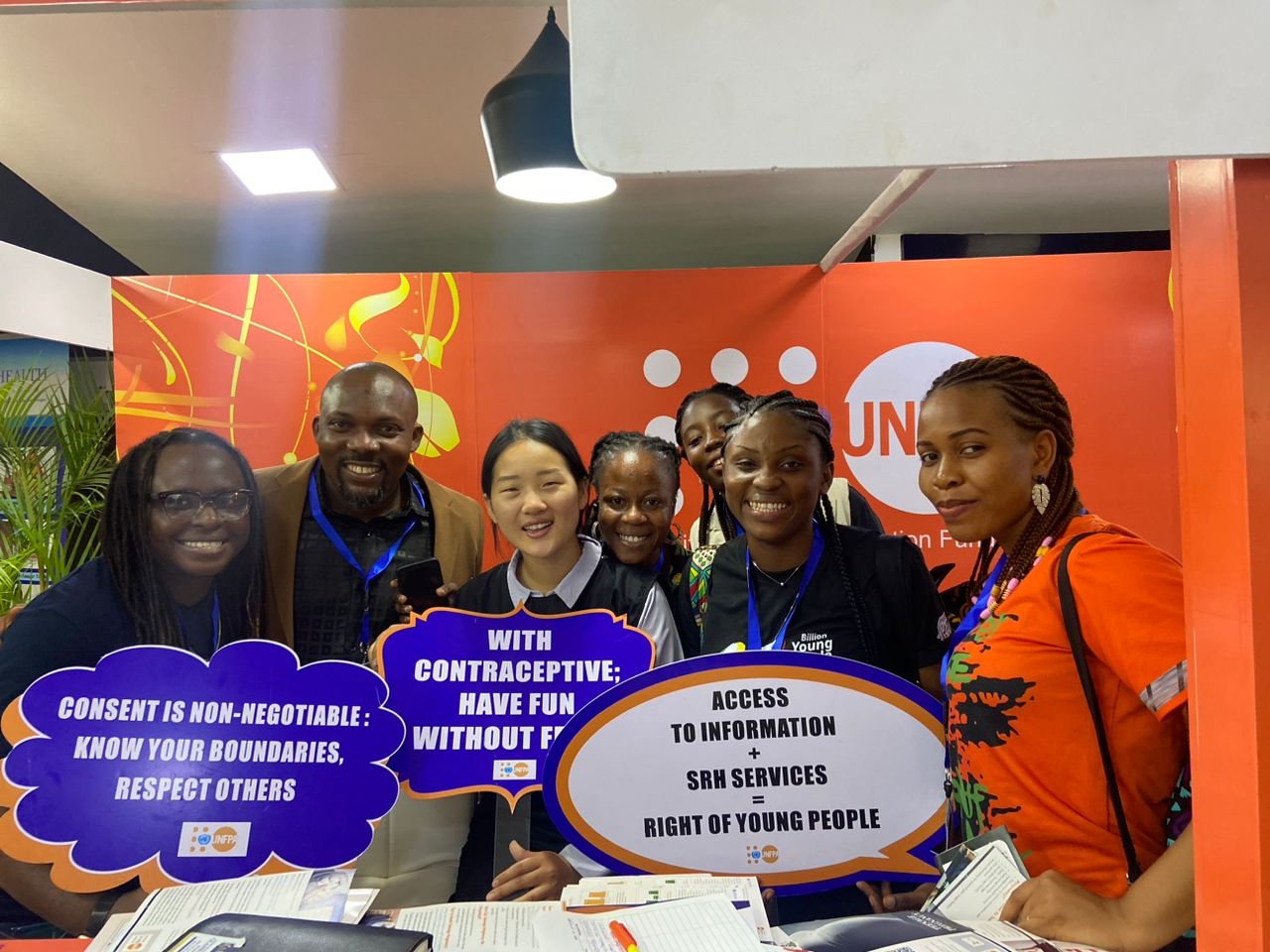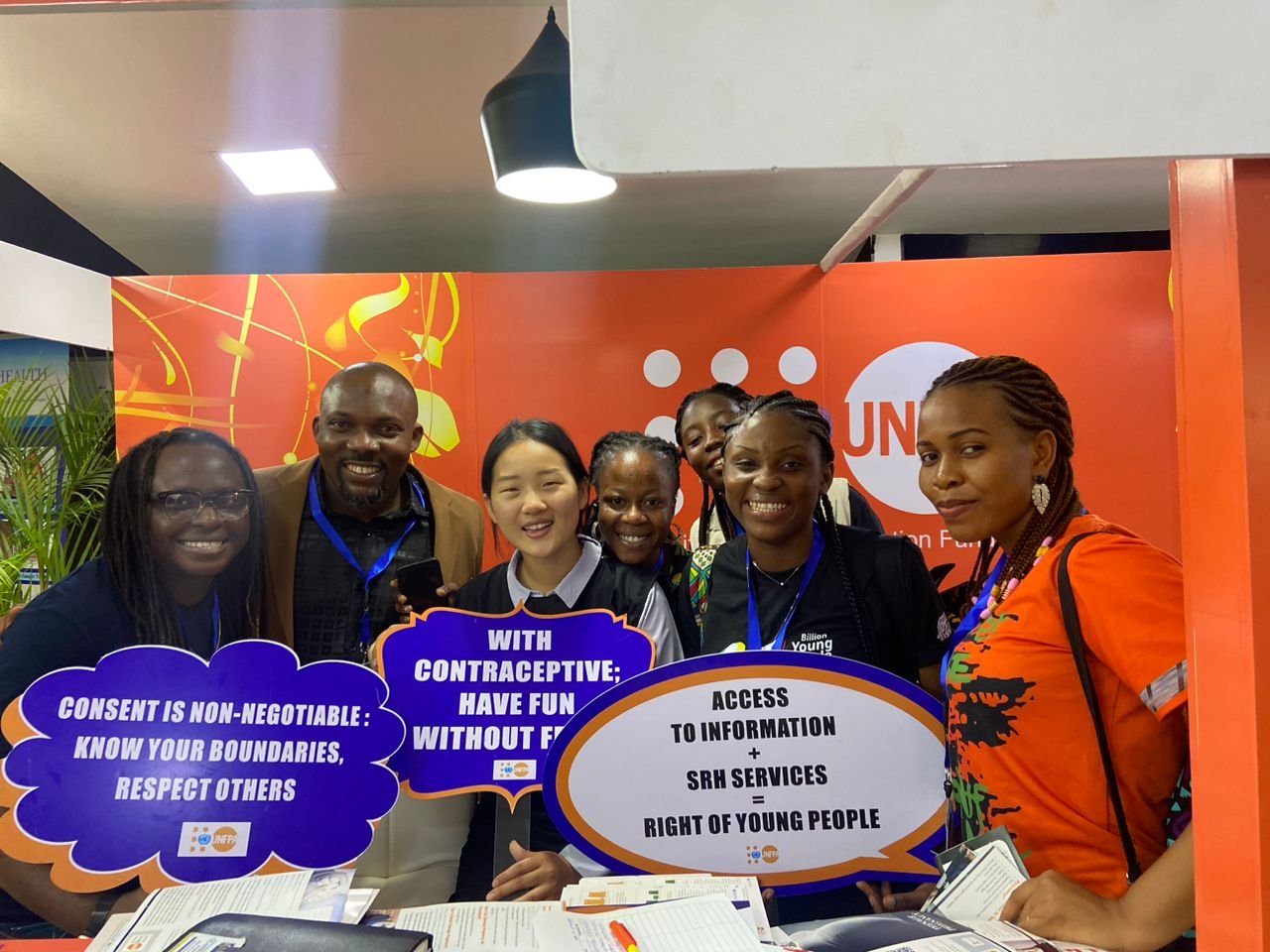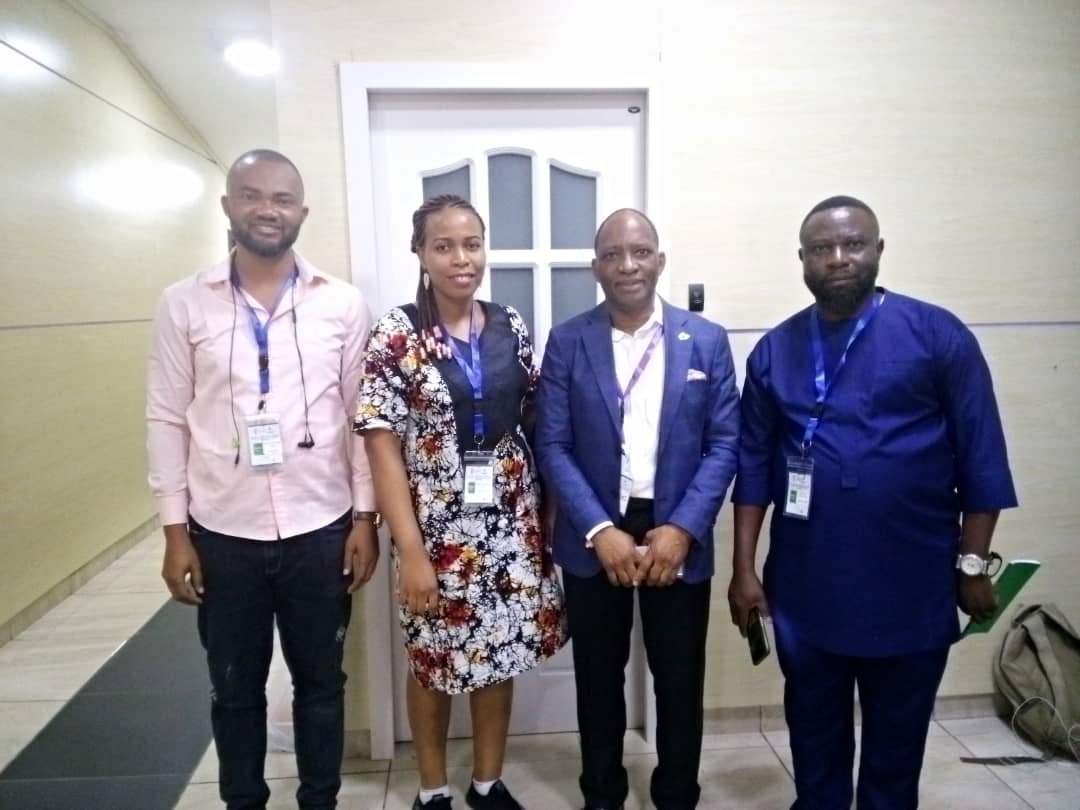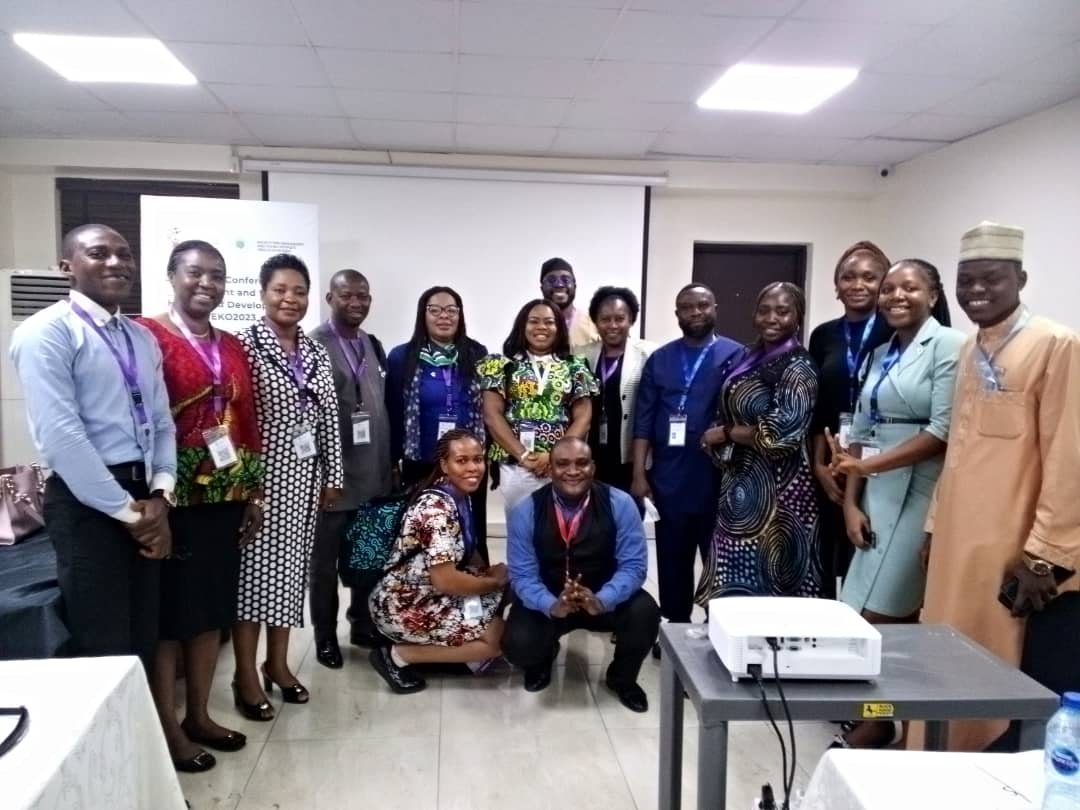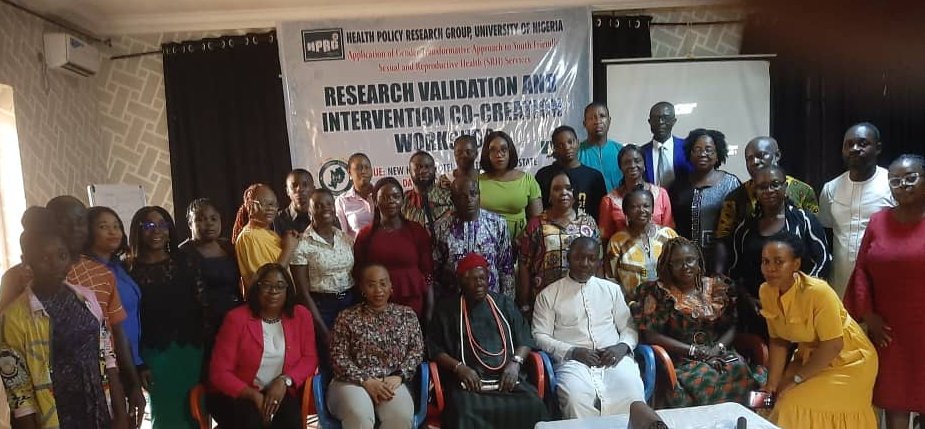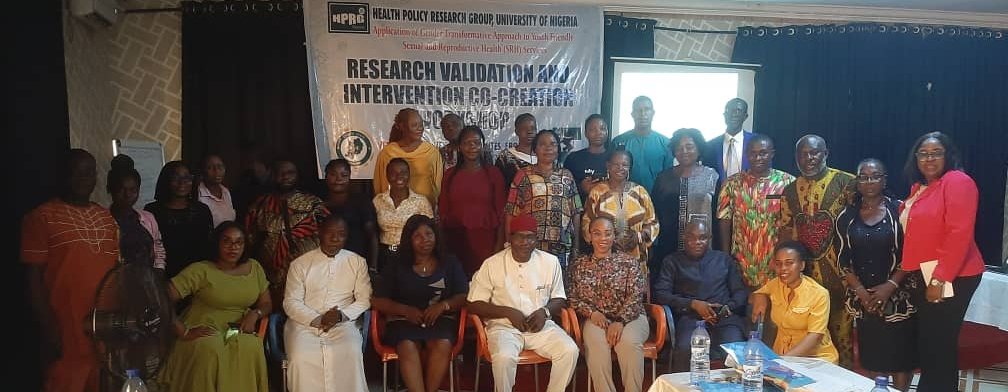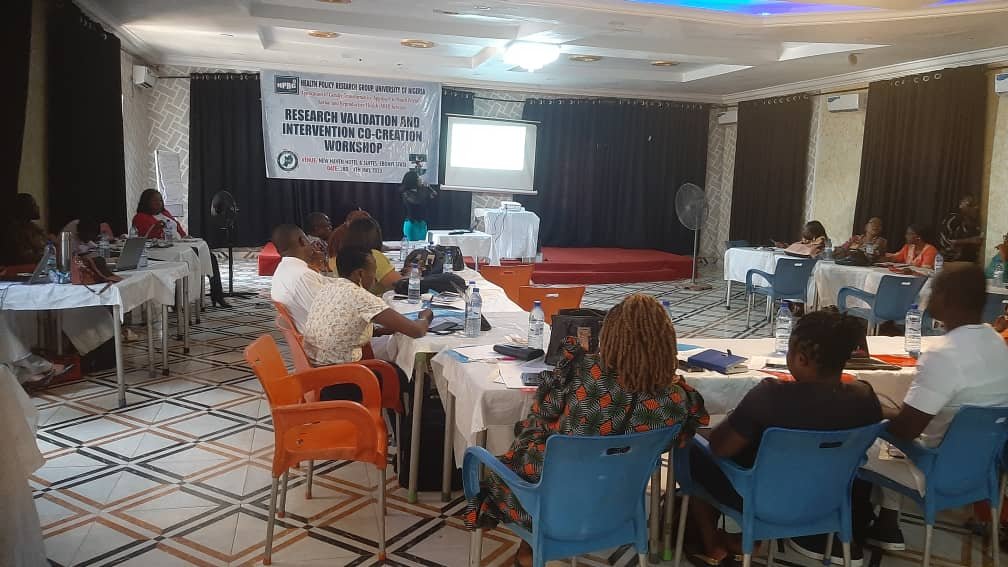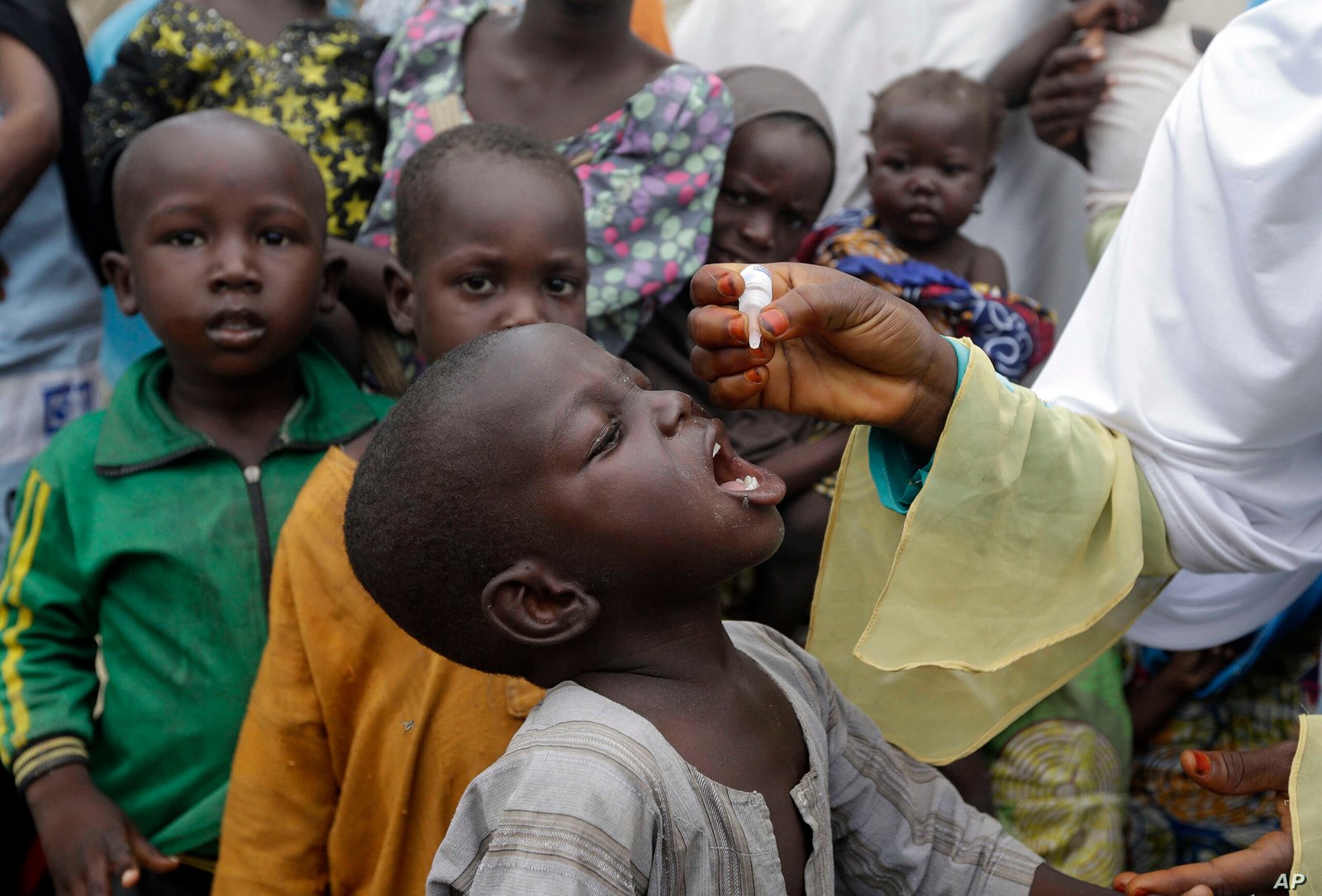By Joy Ozughalu, Irene Eze, & Chinyere Mbachu
“In the quiet corners of Primary Healthcare Centres in these communities, where whispers sometimes replace bold requests, condoms find their way into the hands of rightful young seekers. The request was “Bulletproof” or if you like “Vitamin C” and the response – Condoms? Condoms serve as more than mere contraceptives—they symbolise a bridge between vulnerability and empowerment, health and illness. As health care workers continue in their roles with dedicated efforts, they remind us that sometimes, a playful nickname can change [saves] lives.”- Authors’ musings
In one of the communities in Ebonyi State where the Health Policy Research Group (HPRG), University of Nigeria is implementing a project on Sexual and Reproductive Health Rights (SRHR) and services for adolescents, a new trend is emerging, involving young boys who now engage health workers to talk about their sexual health.
Prior to the intervention led by HPRG’s SRHR project, boys felt they did not need to visit the health centres, despite being largely at risk of harmful sexual consequences such as sexually transmitted diseases (STDs) and even responsible for several unwanted pregnancies. As commonly observed, girls have always been the focus of SRH interventions, with little or no attention to the boys. The consequence of this one-sidedness is that we have had compliant girls who end up sexually battered by non-compliant boys. We report in this blog the SRHR successes we are recording by working with boys.
Boys say, ‘rather than being irresponsible in secret, I can be responsible by speaking up.’
The discreet sexual activities of young boys in communities are well-known and problematic. An avenue for boys to speak about issues relating to their sexual health is very important. Our intervention has stimulated consciousness among boys in the communities where we work. Some of the boys now visit health facilities to share concerns about their sexual health needs, and some bolder ones try to seek access to condoms, demonstrating their consciousness around protective sex.
However, instead of the boys making straightforward requests, they employ an array of nicknames for condoms. These nicknames serve as both a verbal disguise for condoms and a way to break the ice, bridging the gap between embarrassment and necessity. Some of these nicknames include “Raincoats”, Bulletproof”, “Rubber”, “CD”, “Tarpaulin”, “Vitamin C”, and “Chewing gum” (which they have localized as ‘chingum’).
Each nickname carries a hint of humour, making the conversation less clinical and more relatable. It is a linguistic dance—a delicate balance between discretion and openness. Despite improved knowledge and actions towards SRHR among boys, many have remained nervous with such requests, and they always want health workers close to them while making their nick-named requests for condoms or talking about their sexual concerns.
Early Insights from our Community Inclusive Gender-Transformative Approaches (GTA)
Our interventions are gender-transformative in principle and practice. By gender-transformative approach, we mean seeing both boys and girls as equals and deserving of help. We underscore the SRH needs of different gender, including the barriers they face, and we develop evidence-informed responses.
The training of health workers and community leaders in the communities where we work relies on a gender-transformative approach, which has now made these stakeholders less judgmental and open to conversations with boys about their sexual health. Here are some early insights we are coming to understand from this important work:
-
Society considers it taboo for boys to come out openly with their sexual needs. However, with organised SRHR intervention targeting boys, boys attempt to navigate this minefield using playful postures. It is a way for them to say, “I need protection, but let’s keep it light.”
-
Boys who come to health facilities to discuss their sexual concerns with health workers or to request condoms do so based on trust in the health workers. They will be disappointed if any of the health workers exposes them to their families or the public and they may become discreet with their sexual concerns going forward.
-
Boys residing in communities where houses are closely packed are very mindful of reputational damage. Health workers in such communities will have to be very mindful not to undermine the trust such boys have in them by being open about their sexual health and needs.
-
For primary health workers to be approachable by boys, they must present themselves in a somewhat youthful and relatable manner.
-
Sex education must be comprehensive by equally focusing on boys and girls, so as to create a more equitable society where everyone is equipped to make healthy and informed decisions about his/her sexual and reproductive health.
Final message – In sexual and reproductive health for young people, silence could be dangerous
While it is endearing that boys could use nicknames to express their need for condoms in Nigeria, this experience also highlights gaps in sexual education. And so, we are reminded of the responsibility to advance community awareness campaigns to normalise conversations surrounding sexual and reproductive health rights and services.
In addition, healthcare workers need routine training to address sexual and reproductive health of young people without judgment. They should make themselves available, listen attentively, be intuitive to decode the nicknames, and provide the necessary information and services. With this, they will build trust, dismantle barriers, and avert the consequences of sexual silence and discrete sexual behaviors.
Authors’ Bio
Joy Ozughalu is a Public health researcher with the Health Policy Research Group (HPRG) affiliated with the University of Nigeria.
Irene Eze is a Consultant Public Health Physician at the College of Health Science, Ebonyi State University and a researcher at the Health Policy Research Group.
Chinyere Mbachu is a Professor of Community Medicine, Public Health advocate and Health Systems researcher with the Health Policy Research Group, University of Nigeria.
Acknowledgement
We thank Dr Prince Agwu for expert review of the blog.

